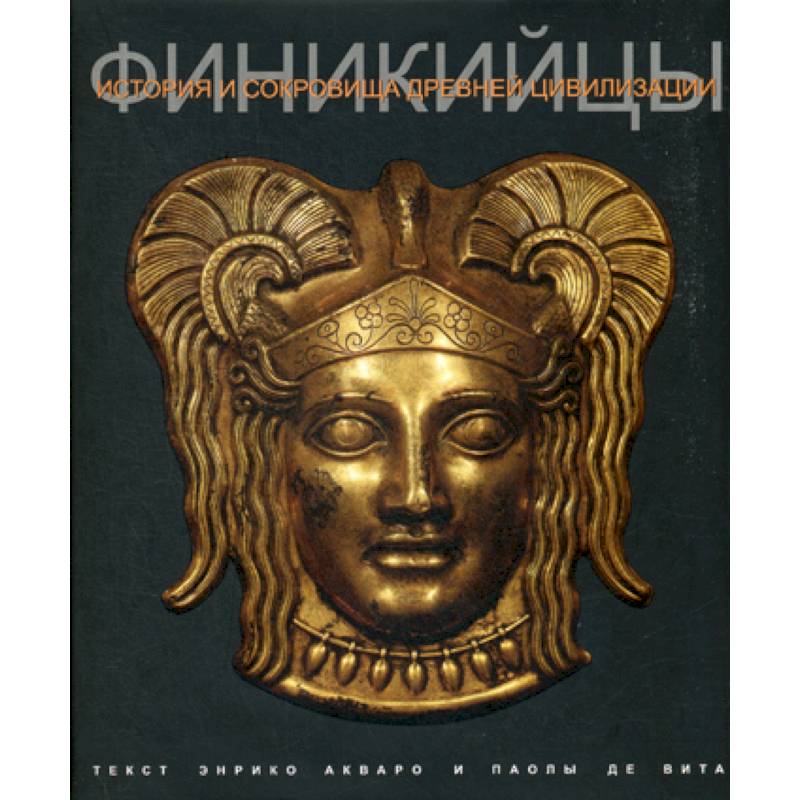Phoenicians
Please sign in so that we can notify you about a reply
This volume tells about the most significant events in the history of the Phoenicians, from the origin of this people in the east to the appearance of it in the West and the foundation of Carthage.
History and marine “profession” of the city-states of the ancient Syrian-Palestinian region developed among the most powerful nationalities of the Middle East, with which the Phoenicians entered into trade relations and a variety of cultural interaction, such as the inhabitants of the Israeli kingdom, Assyrians, Egyptians, Egyptians, Egyptian Persians and Greeks of the Aegean region. The Phoenician urban culture has created advanced forms of urban planning and highly effective forms of management at that time. The decision of the Phoenicians to develop trade relations, moving to the West, was a logical and justified by a commercial point of view, based on a smart, visionary policy, which led to the foundation of the first colonies and the consistent development of Carthage. Over time, this city became a Phoenician metro in the Central Western Mediterranean.
Phoenician colonization covered vast territories from North Africa to Sicily, Sardinia and the Iberian (Pyrenee) Peninsula. The natural consequence of this process was the “imperial” policy of Carthage, which led to a conflict in Sicily, first with the Greeks, and then with Rome. The eastern state, which has gone roots on North African soil, Carthage under the rule of Hannibal was an expression of one of the most peculiar periods in the history of the Mediterranean, and only Rome was able to limit and tame its power. The legacy of Carthage in the craft culture and religion was destined to remain alive in the Mediterranean for a long time, and Rome himself contributed to this, which, however, ultimately destroyed the city.
This book for a wide range of readers is based on recent discoveries in the field of historical and archaeological research. It made an attempt to describe all aspects of the Phoenician civilization and show the enduring attractiveness of the people, who played a historical role in the development of contacts between various cultures
History and marine “profession” of the city-states of the ancient Syrian-Palestinian region developed among the most powerful nationalities of the Middle East, with which the Phoenicians entered into trade relations and a variety of cultural interaction, such as the inhabitants of the Israeli kingdom, Assyrians, Egyptians, Egyptians, Egyptian Persians and Greeks of the Aegean region. The Phoenician urban culture has created advanced forms of urban planning and highly effective forms of management at that time. The decision of the Phoenicians to develop trade relations, moving to the West, was a logical and justified by a commercial point of view, based on a smart, visionary policy, which led to the foundation of the first colonies and the consistent development of Carthage. Over time, this city became a Phoenician metro in the Central Western Mediterranean.
Phoenician colonization covered vast territories from North Africa to Sicily, Sardinia and the Iberian (Pyrenee) Peninsula. The natural consequence of this process was the “imperial” policy of Carthage, which led to a conflict in Sicily, first with the Greeks, and then with Rome. The eastern state, which has gone roots on North African soil, Carthage under the rule of Hannibal was an expression of one of the most peculiar periods in the history of the Mediterranean, and only Rome was able to limit and tame its power. The legacy of Carthage in the craft culture and religion was destined to remain alive in the Mediterranean for a long time, and Rome himself contributed to this, which, however, ultimately destroyed the city.
This book for a wide range of readers is based on recent discoveries in the field of historical and archaeological research. It made an attempt to describe all aspects of the Phoenician civilization and show the enduring attractiveness of the people, who played a historical role in the development of contacts between various cultures
Author:
Author:Paola de Vita, Aquaro Enrico
Cover:
Cover:Hard
Category:
- Category:Biographies & Memoirs
- Category:History & Geography
Publication language:
Publication Language:Russian
ISBN:
ISBN:978-601-302-849-1
No reviews found
